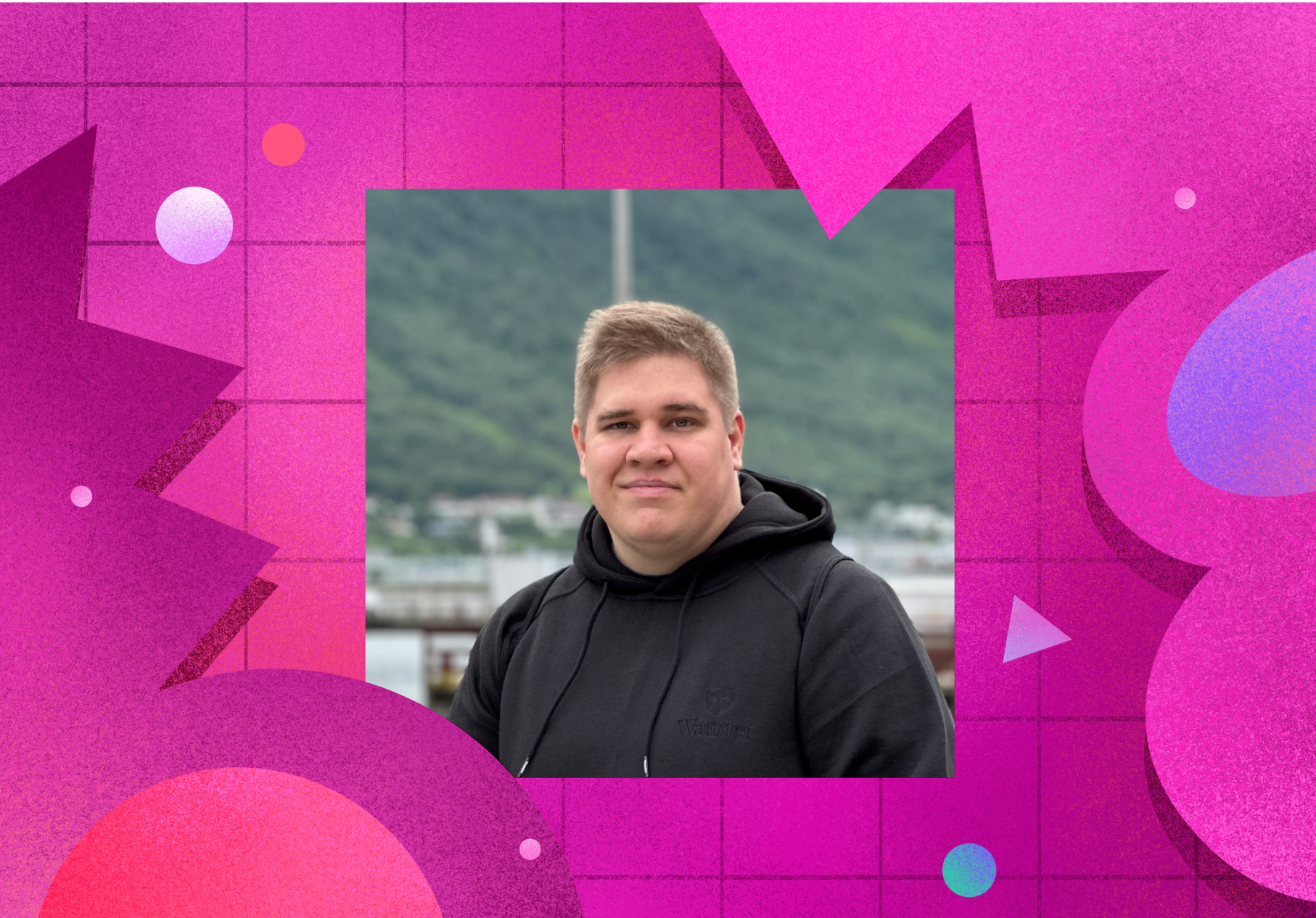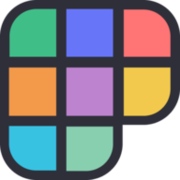Tamás Deme’s lifelong passion for technology might have begun in the most unlikely of places — at story time with his mother.
“Supposedly when I was three years old, instead of reading actual fairy tales, I asked my mom to read the manual for our car to me,” Tamás says.
It’s fair to say that Tamás’s path to his current role as Engineering Lead at Contenda was no fairytale (we’ll explain), but what makes a journey so much more meaningful is the eventual destination. For Tamás, it culminates in the same place: the understanding that an innate curiosity with building things — from computers to communities — could become a significant part of his present and future.
A path paved with early obstacles
Tamás realized early on that he was, like many of us, more passionate about doing the thing than learning about doing the thing.
College, for instance, was an awakening of sorts (rude or not is subjective). By the numbers, Tamás spent nine years working to complete his bachelor's, was kicked out of school twice, and says he now has nothing to show for it. He can look back and laugh these days, he says, with what he now knows to be true: entering the tech industry was more accepting of experience over formal education, which no school could really teach (and that Tamás had in droves).

“My journey is that I was kicked out of college because I wasn't learning there, but I was learning so much more and so many more useful things outside of it [aside from the first few semesters' basics], as I was working from a very early age,” he says.
What the tech world offered was more than any degree could: the ability to pursue a passion and a meaningful career. That’s been validated in both big and small ways, none as evident as his nine Microsoft MVP awards in the Windows Development category.
“I like to try and tackle areas that I don't see getting a lot of love."
Driven by his interest in design, dev, and everything else, Tamás delved into content creation. Early on, there was a Photoshop tutorials website, Designers Edge, one of his first community-building interactions. It also got him used to the demands of constantly producing content, which takes a great deal of energy and time. Oh, and there was that time he became an accidental tech journalist, taking over a publication and writing more than a thousand articles. These included interviews with Hungarian app developers and covering various platforms.
Today, his writing spans a spectrum of topics, including basic film editing to “recording his life in higher resolution on Polywork”. His vast array of content — from talks to “things I’ve made” can also be found on his website.
“I like to try and tackle areas that I don't see getting a lot of love,” he says of his time creating content, with topics including accessibility in AR and VR.
Connections gained — and lost
At its lowest common denominator, effective content resonates with audiences on a deeper level. That said, all audiences are not created equal. When you layer on the difficulty of technically savvy audiences, content creation can be a wholly different experience.
“I think generally in a newspaper, I wouldn't say that you can just write anything and people believe it, but I would say most of the people just read the news and then acknowledge it,” Tamás says. “But with technical audiences, we have the culture of liking to share things, but also making assumptions about the author’s qualifications to write the article in the first place. So I think that’s definitely a difference there in style where you have to be a lot more articulate and put all the asterisks in your [content] to explain that these are the reasons why X, Y, and Z is that way and not the other way.”

The world was similarly unforgiving. Right as these audience connections and communities were being formed, the pandemic put all of us into shutdown mode. Content creation took on a different role in the midst of the pandemic, as Tamás was unable to tap a direct source of content ideas — other developers and creators from the community he met along his travels to conferences and in-person meetups.
Tamás says that he missed the "hallway track" of conferences, where the best, informal interactions and networking can take place outside of formal sessions. Online conferences and virtual breakout rooms have attempted to replicate these experiences, but have fallen short in capturing the organic nature of in-person interactions, he’s found.
The pros and cons of building an online presence
In-person or not, the element of identity for content creators cannot be overlooked. There’s a generational divide — those who know of an online world where their information isn't flowing freely, out of their control, across the internet. Then, there’s those who have become accustomed to the trade-off between filling out an online form and surrendering information into the digital ether.
“I feel like it's a really cheap saying, but if something's free, then you are the product generally. More than ever, I think it's true.”
It’s difficult to navigate at times, Tamás admits, as he considers a question about how he controls the narratives around his personal and professional identity that many of us — content creators no exception — struggle with today.
“I feel like it's a really cheap saying, but if something's free, then you are the product generally,” he says. “More than ever, I think it's true.”
This, he notes, ultimately speaks to the wider challenges around online privacy education. For those “chronically online” like himself, there is an awareness of the risks and the tools available to control their information flow. However, the majority of us remain oblivious and indifferent until there are negative consequences. His advice is to be mindful of everything — from the name or handle you use to identify yourself as a writer or creator or the ways you interact with others in the community.

“Like, I can't really separate [the personal and professional presence] anymore because of the way I was using my name and communicating things. And today I am realizing and seeing the benefits of…making the conscious choice to try and separate your personal self more from your professional self,” he says.
On being a good communicator
This might sound obvious, Tamás says, but one of the not-so-secret ways of building an audience is literally speaking their first, if not second, language.
“If your native language is not English, learn English and be good at English,” he says. So many people believe that it's fine not to do that. And I think they're cutting themselves off from an incredible wealth of resources and people and culture. And anything you do in this industry, your life is going to be incomprehensibly easier and better if you understand and are able to communicate with pretty much everyone.”
"So many people think that this sort of content creation or anything around that is just like, ‘I need to get the creative things flowing and then it's going to happen."
Tamás also points to consistency – when audiences expect to see new, helpful content, they’ll continue to come back and tell others.
“It's really hard, but you just kind of have to sort of stick with it because that's the way you get better at it. It's a job,” he says. “So many people think that this sort of content creation or anything around that is just like, ‘I need to get the creative things flowing and then it's going to happen.’ No, you need to sit down and you need to write out a hundred words a day, even if it takes you two hours and then write the next hundred the next day.”
Time box things, write out like a large outline. Start from the end if you want. Just keep writing ideas down at least, so when you do think of something, you can just write out as much of it as you can. Just try to be consistent because that's the way you're gonna be better at it. That's the way you're gonna improve. At the beginning, it's probably gonna be crap, but that's okay.”
More than anything, Tamas has found that by documenting his journey and sharing those experiences along the way, he has formed lifelong connections with others and provided valuable insights that may be overlooked by experts.
“There’s always value in sharing perspectives and learning from others, even as a beginner,” he says.




